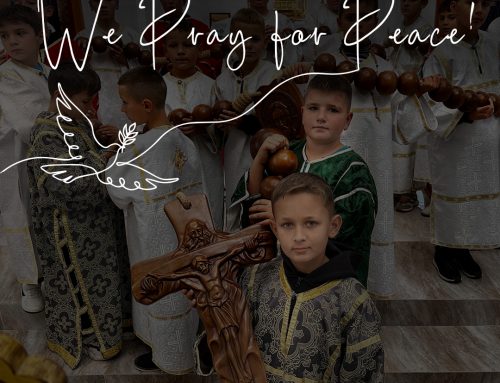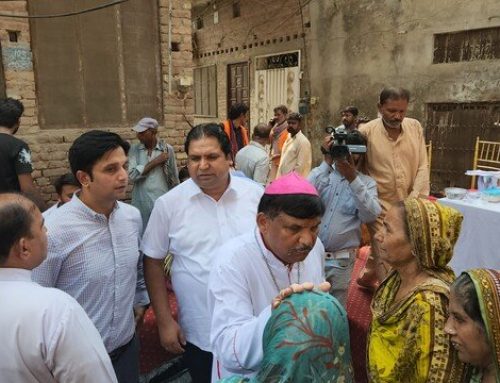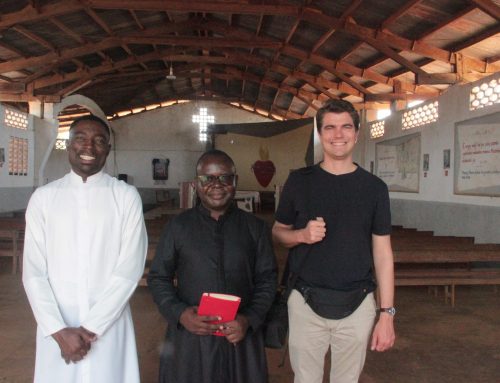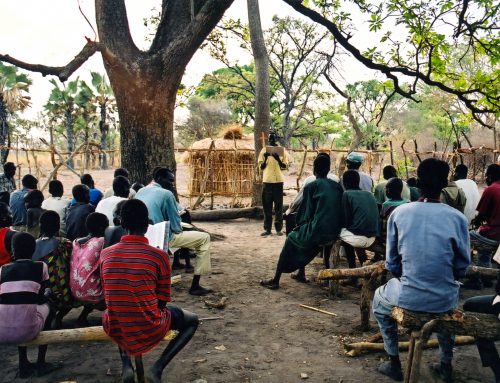NIGERIA – Sectarian violence threatens to tear the country apart
Nigeria is a ticking time bomb. Extreme violence and religious discrimination is threatening to tear the country apart along religious fault lines and spread its existing refugee crisis throughout the region.
Elijah Brown, executive vice president of the 21st Century Wilberforce Initiative, scribes the situation: “Nigeria is a country on the verge of fracturing. What is unfolding in Northern and Central Nigeria is one of the worst, most neglected humanitarian crises in the world …. Millions affected, thousands slaughtered, insecurity rampant, children ravaged by malnutrition.”
Almost 15 million in northeastern Nigeria “have been impacted” by the violence in the region. The recorded number of internally-displaced persons is over 2 million though the actual figure is probably more like 5 – 7 million since many refugees are living with family members outside of refugee camps. Millions fled their homes after attacks on villages and schools by the terror group Boko Haram– most known for its April 2014 abduction of over 200 school girls in Chibok. Fulani herdsmen in the fertile Middle Belt region destroyed entire villages.
A humanitarian crisis is developing as displaced persons, especially pregnant women and young children, remain vulnerable to violence. Many are homeless, face food insecurity, have minimal access to health services and virtually no access to education. If these problems are not addressed swiftly, they could tear the country apart. The worsening situation could force refugees to flee the country in large numbers, extending the current humanitarian crisis to neighbouring countries in Africa, and possibly even impact Europe.
Systematic and widespread discrimination throughout Northern and Central Nigeria against religious and ethnic minorities is making the situation worse. This includes denying health care to non-Muslims, the inability to procure land for church construction and predominantly Christian areas left without sufficient security forces. Twelve northern states have now adopted Sharia Law, putting religious minorities in the area at risk of disenfranchisement.
Brown noted “a foundation of discrimination that is far greater and far more substantive than is often considered.” He insisted that “Just as important as considering the general economic malaise within Northern Nigeria, it is also imperative to address the ongoing policies and practices that intentionally target and seek to disempower religious minority communities within the north and the Middle Belt.”
The U.S. Ambassador at-Large for International Religious Freedom, Rabbi David Saperstein, praised Nigeria’s “vibrant” religious witness but warned of widespread abuses of religious freedom there. He observed that in parts of the country, religious freedom laws might be nullified by political leaders favoring one religious group over others. Christian leaders informed him of Christians having “to submit to Sharia courts” because of “social pressures.” A Muslim leader reported discrimination committed against Muslims in a Christian-majority area in the south. Religious freedom abuses like blasphemy laws have also surfaced, he said, allowing for discrimination to occur with “impunity.”
These religious tensions are undermining social cohesion. Christians can no longer trust Muslim neighbors in the north any more after the rise of Boko Haram because of suspicion that they cooperated with the terror group. Saperstein said:
“Those with whom I met identified politics, confusion between religion and culture, poor religious education, and most of all the impact of sectarian violence as major drivers of separation between religious communities, of religious discrimination and even conflict in Nigeria.”
The world’s attention is currently focussed on Islamic State and the Syrian refugee crisis, that concerns around 23-25 million people. Yet Nigeria is the largest African country with a population of 180 million, and has been ravaged by terrorist groups, the first and fourth largest in the world. Boko Haram was the most destructive terrorist group in the world in 2015, far worse than its affiliate Islamic State and the Fulani militant herdsmen are the fourth.
The challenges Nigeria faces are serious and if the country breaks apart the impact for the rest of the world will be catastrophic. Nigeria needs effective measures to counter terrorism, to promote tolerance amongst religious groups and provide security for displaced people who want to return to their homes.
ACN Malta




